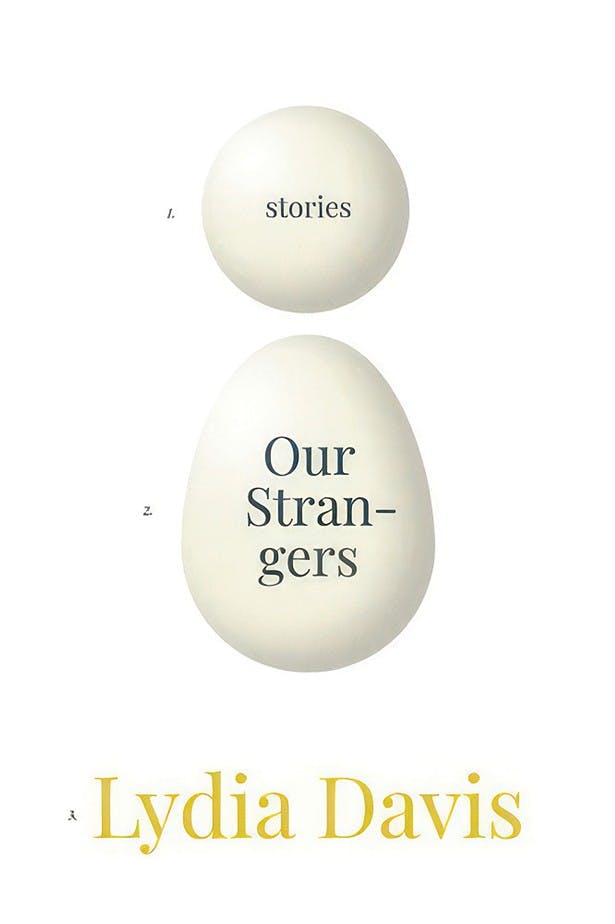

Our Strangers
Her newest collection of fiction writing, Our Strangers, reflects this new consciousness in subtle ways. The pieces here—143 pieces in total—have a lot in common with her earlier work: Most are just a page or two in length, with a handful of very sparse prose pieces with line breaks. There are series that run through the collection—scrupulous descriptions of somebody’s distant relations to famous people, vignettes of moments of annoyance in a marriage—as well as pieces that are revisions, or alternate tellings, of previous ones. But if she continues to pay heed to the smallest, unturned details of the problems of domestic life, she affords them less importance than before. With insistence, she returns to themes of plant and animal life, community, and old age.
Davis has wondered if she should continue to write amid the destruction of our environment. Her increasing ambivalence about writing is detectable in Our Strangers—not because her prose is any less good, but because its fastidiousness now seems to culminate in ordinary everyday language. In her latest stories, she has made herself smaller, shifting her focus to networks, communities, and systems, the units which we will need to think in to change course collectively.
Davis’s title announces straight away the new territory she is exploring. Whereas older collections like Break It Down (1986), Almost No Memory (1997), and Can’t and Won’t (2013) largely feature intimate relations—husbands, ex-husbands, friends, children—this collection foregrounds a cast of strangers—neighbors, fellow travelers, old men seen around town. These strangers variously produce reactions of irritation, bafflement, pity, gratitude, and intrigue.




